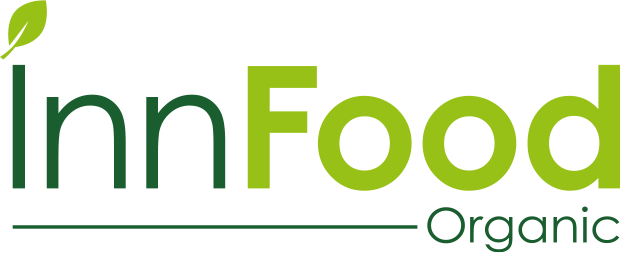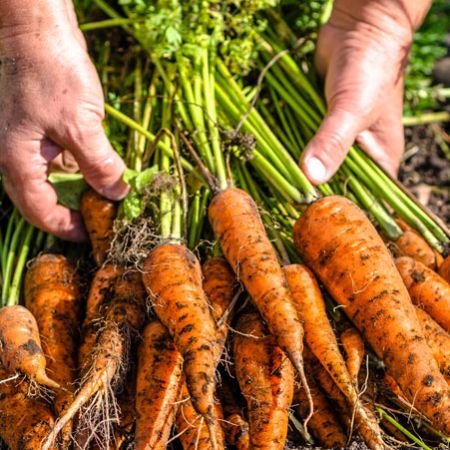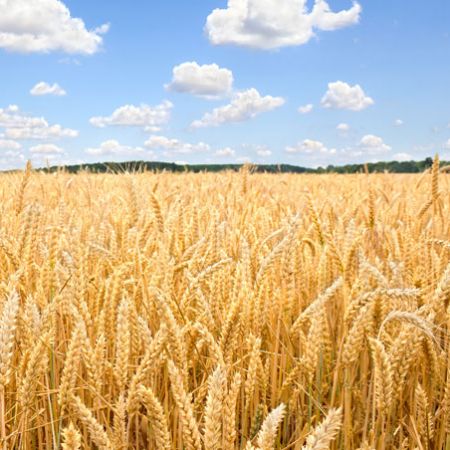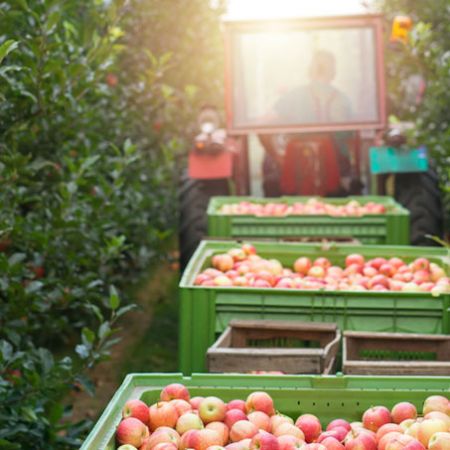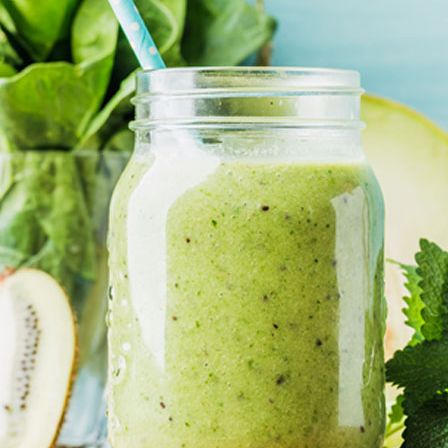We operate sustainably
Our aim is to meet the needs of the current generation without endangering the options of future generations. We want to leave our children and grandchildren an intact ecological, social and economic framework that makes it possible for them to satisfy their needs and freely choose their own way of life. To this end, we have oriented our entire production process towards sustainability and environmental protection.
For example, our production only uses our own mineral-spring-grade water, which is pumped on site and doesn’t require chlorination.
The majority of the electricity we use comes from renewable energy sources, and the water used in our sterilisation processes is reused for heat recovery. We also have our own waste treatment plant, and for the sake of the environment, we don’t use combustible fuel – all the heat used comes from steam.

Regional focus
There’s a big benefit to regionally produced food products: shorter transport times mean less harmful carbon dioxide is released into the environment. As a result, using regional food products can make an important contribution to climate protection. And regional food products also play a meaningful role in species and landscape conservation –
for example, some types of fruit are only grown in specific regions. Cultivating these varieties, rather than just the three to five usually found in supermarkets, helps to preserve species diversity. On top of that, it ensures that local meadow orchards are maintained. When this is additionally complemented by extensive pasture grazing, regional food products become a key element in preserving the local landscape.
Safe organic raw ingredients – a vital foundation
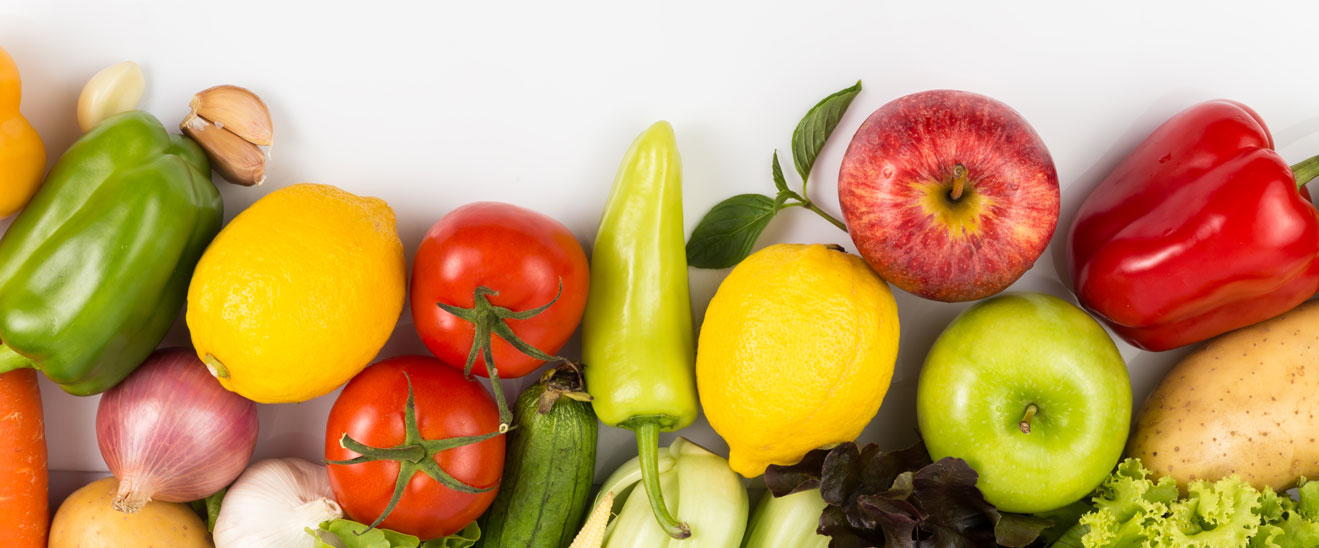
We specialise in sourcing and processing organic, non-GMO raw ingredients produced without the use of chemical and synthetic pesticides or fertilisers through ecologically certified agriculture.
Studies by the European Food Safety Authority (EFSA) have shown that organic fruit and vegetables contain significantly fewer traces of chemical and synthetics pesticides than conventionally grown raw ingredients.
Our purchasing team, who procure our raw ingredients, use their expertise regarding the farming and processing of agricultural crops to ensure that we only receive raw ingredients that meet the highest quality standards.
All-glass packaging

For many consumers, sustainability is now an important consideration when making purchasing choices. Conserving resources, protecting the climate and environment and reusing materials are all important factors in that decision. Glass packaging addresses all these concerns. It is manufactured almost entirely from natural raw materials that are in plentiful supply in nature and can largely be sourced in Germany. That avoids the need to transport them over long distances, greatly benefiting the climate and environment.
Glass is up to 100% recyclable. The most important raw material for glass packaging is recycled glass, which on average makes up 60% of new glass containers. Glass can be recycled again and again without degrading in quality.
It also enables food products to be safely stored for long periods of time. For that reason, glass containers are ideally suited to reducing waste resulting from everyday food products.
Glass packaging is ideal when it comes to both health and enjoyment, because it has one other big advantage: there is next to no interaction between the contents and the container.
